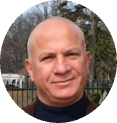The Middle East is a global hot spot for climate change and environmental stress on water, energy, agriculture, health and other essential necessities. Many cities in our region are predicted to become uninhabitable by the end of the century. In recognition of this pressing reality, the Arava Institute for Environmental Studies and its Palestinian partners conduct regional environmental diplomatic activities, academic research, and initiate and execute projects throughout the Middle East.
The need to equip national and regional policy makers, diplomats, community leaders, security experts, and health officials with the tools to deal with the growing risks of climate change is urgent. At present, no bi-lateral or regional effort combines scientific understanding of climate change with political, economic, and strategic analysis of national and regional effects to give policy-makers actionable insights and to give businesses sustainable opportunities to combat this challenge, all while addressing the political realities and levels of mistrust among parties.
In this talk, advancing climate justice and resilience in conflict zones and examples of trans-boundary environmental projects, such as water production, wastewater treatment, solar energy applications and water-energy-food nexus projects will be presented.
Grainger Hall, 9 Circuit Drive
Field Auditorium
Durham, NC 27708
4:30 pm – 5:30 pm: A reception will precede the talk
5:30 pm – 6:30 pm: Lecture
Presented by the Nicholas School of the Environment, the Duke Human Rights Center at the Franklin Humanities Institute, and the Duke University Provost's Initiative on the Middle East.
Speaker Bio
Dr. Tareq Abu Hamed, Executive Director of the Arava Institute for Environmental Studies
A recognized leader in renewable energy technology and regional cooperation, Dr. Abu Hamed launched and led the Institute’s Center for Renewable Energy and Energy Conservation and served as the Institute’s Academic Director. He is one of the leaders of Israeli President Herzog’s Climate Forum, co-chairing the task force on Regional Cooperation and Security.
Named one of “48 Israelis shaping Israel and the world, today and into the future” by Israel 21c in April 2023, Dr. Abu Hamed first joined the Arava Institute in 2008, when he established the Arava Institute’s Center for Renewable Energy and Energy Conservation. He left the Institute in 2013 to become the Israeli Ministry of Science’s Deputy Chief Scientist, and later the Acting Chief Scientist, the highest ranking Palestinian in the Israeli government at that time. He returned to the Arava Institute in 2016.
Dr. Abu Hamed holds a Bachelor and a Master of Science in Chemical Engineering from Gazi University (Turkey), and a Ph.D. in Chemical Engineering from Ankara University (Turkey). He has completed two terms of postdoctoral research, one at the Environmental Science and Energy Research Department of the Weizmann Institute of Science (Israel), and the second at the University of Minnesota’s Mechanical Engineering Department Solar Energy Lab. He also holds a Master’s in Public Policy from Hebrew University. He lives in East Jerusalem with his wife and five children.
The Arava Institute for Environmental Studies (AIES) is a leading academic and research institute in the Middle East is a JNF affiliate whose mission is to advance cross-border environmental cooperation in the face of political conflict. Located on Kibbutz Ketura in southern Israel, the Institute implements on-the-ground projects, conducts cutting-edge research, and offers an accredited university-level academic program. For more than 25 years, the Arava Institute has provided students with an unparalleled environmental education in an immersive, cross-cultural setting. Today, the Institute’s alumni include more than 1,600 Palestinian, Jordanian, Israeli, and international students. Remaining true to the notion that ‘nature knows no borders’, AIES works to protect fragile shared environmental resources; eliminate conflict over these scarce natural resources; and in so doing, serve as a model for constructive peacemaking. The Arava Institute’s work is changing lives on the ground and building trust – the scarcest resource in the Middle East.
